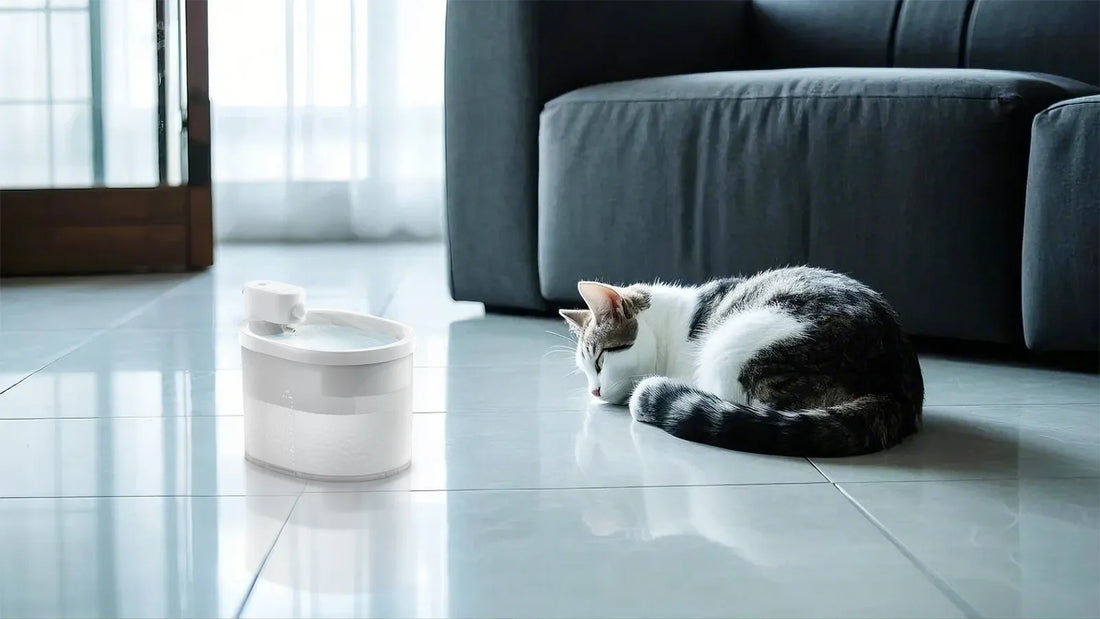If you’ve ever found yourself asking, 'Why is my cat pooping and peeing outside the litter box?' you’re not alone. This frustrating behavior is a common concern among cat owners, but understanding the underlying causes can help you address the problem effectively. Cats are creatures of habit, and any deviation from their usual routine can signal an issue that needs attention. Let’s dive into the possible reasons and explore actionable solutions to restore harmony in your home.
Medical Issues
One of the first things to consider when your cat starts avoiding the litter box is their health. Cats are masters at hiding discomfort, so changes in their bathroom habits can be an early warning sign of an underlying medical condition. Urinary tract infections, kidney disease, diabetes, and arthritis are just a few examples of health issues that can make using the litter box painful or difficult. If your cat is straining to urinate, producing small amounts of urine, or showing signs of discomfort, it’s crucial to consult a veterinarian immediately. Early diagnosis and treatment can prevent more serious complications and help your cat return to their normal routine.
Stress and Anxiety
Cats are highly sensitive animals, and stress or anxiety can significantly impact their behavior. Changes in their environment, such as moving to a new home, introducing a new pet, or even rearranging furniture, can trigger litter box avoidance. Cats thrive on routine and familiarity, so disruptions can make them feel insecure. Additionally, conflicts with other pets or even changes in your schedule can contribute to their stress levels. Creating a calm and stable environment, providing safe spaces, and using calming aids like pheromone diffusers can help alleviate their anxiety and encourage them to use the litter box again.
Litter Box Preferences
Believe it or not, your cat’s litter box habits can be influenced by their preferences. Cats are particular about their bathroom environment, and something as simple as the type of litter, the size of the box, or its location can deter them from using it. Some cats prefer unscented litter, while others may avoid clumping varieties. The box itself should be large enough for your cat to move around comfortably, and it should be placed in a quiet, accessible location. If you have multiple cats, it’s essential to provide enough litter boxes to prevent competition. Experimenting with different options can help you find the perfect setup that meets your cat’s needs.
Cleanliness Matters
Cats are naturally clean animals, and a dirty litter box can be a major turnoff. If the box isn’t cleaned regularly, your cat may choose to eliminate elsewhere. Scooping the litter box daily and performing a thorough cleaning at least once a week can make a significant difference. Additionally, avoid using strong-smelling cleaners, as the lingering scent can be unpleasant for your cat. Maintaining a clean and odor-free litter box is key to encouraging proper use and preventing accidents around your home.
Behavioral Issues
Sometimes, litter box avoidance can stem from behavioral issues rather than physical or environmental factors. Cats may mark their territory by urinating outside the box, especially if they feel threatened or insecure. This behavior is more common in unneutered or unspayed cats, but even fixed cats can exhibit territorial marking. Addressing the root cause of the behavior, such as reducing stressors or providing more resources, can help curb this habit. Positive reinforcement, such as rewarding your cat for using the litter box, can also encourage good behavior over time.
Age-Related Changes
As cats age, their needs and abilities change, and this can affect their litter box habits. Older cats may struggle with mobility issues, making it difficult to access the litter box. Arthritis, vision problems, or cognitive decline can also contribute to accidents outside the box. Providing a litter box with low sides, placing it in an easily accessible location, and ensuring proper lighting can help accommodate your senior cat’s needs. Regular veterinary check-ups are essential to monitor their health and address any age-related concerns promptly.
Environmental Enrichment
Boredom or lack of stimulation can sometimes lead to inappropriate elimination. Cats need mental and physical stimulation to stay happy and healthy. Providing toys, scratching posts, and interactive playtime can help keep your cat engaged and reduce stress. Additionally, creating a stimulating environment with climbing structures and window perches can satisfy their natural instincts. A well-enriched environment not only improves your cat’s overall well-being but also encourages them to use the litter box consistently.
Understanding why your cat is pooping and peeing outside the litter box is the first step toward resolving the issue. By addressing potential medical, environmental, and behavioral factors, you can create a comfortable and stress-free environment for your feline friend. Remember, patience and consistency are key as you work to restore your cat’s litter box habits. With the right approach, you can help your cat feel secure and confident, ensuring a happier and healthier life for both of you.

![[🎃Halloween Sale]UAHPET Stainless Steel Self-Cleaning Cat Litter Box](http://www.uahpet.com/cdn/shop/files/1-cat-litter-box.jpg?v=1761890851&width=1600)












